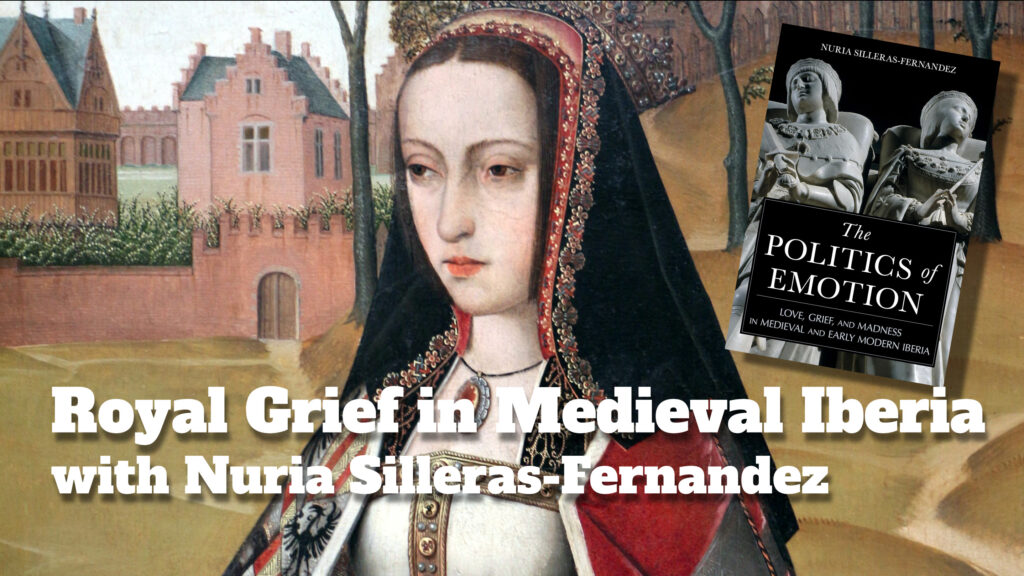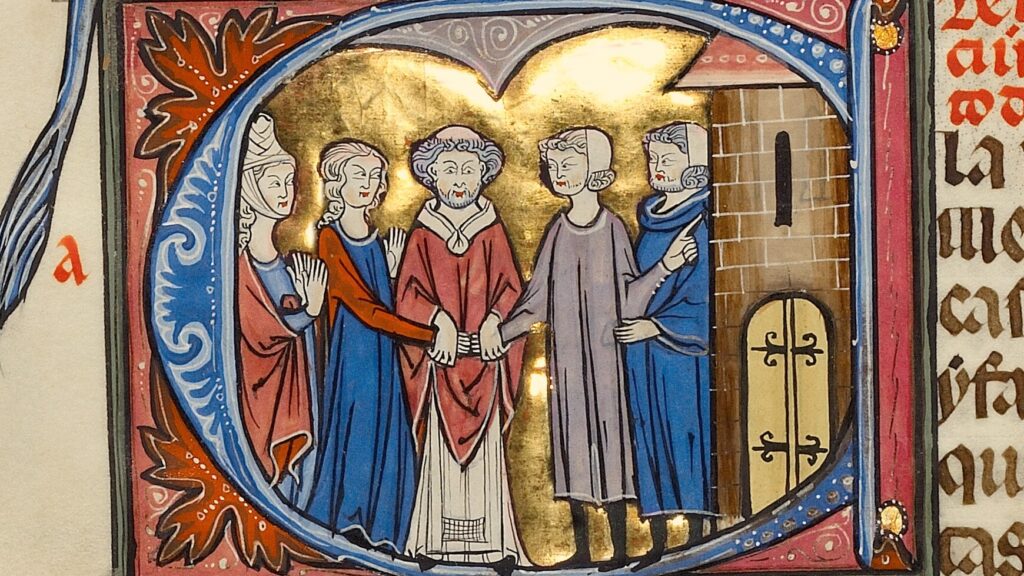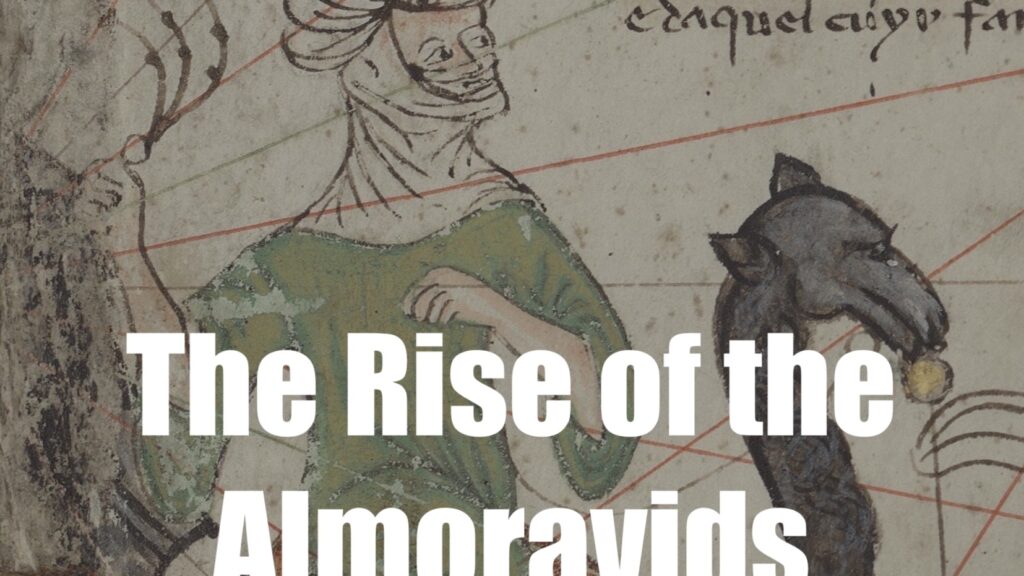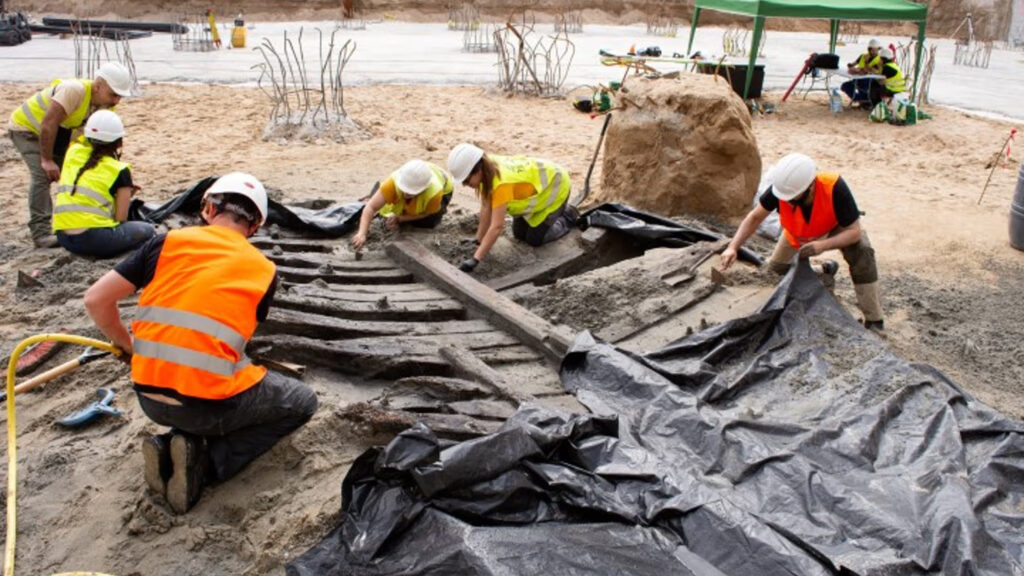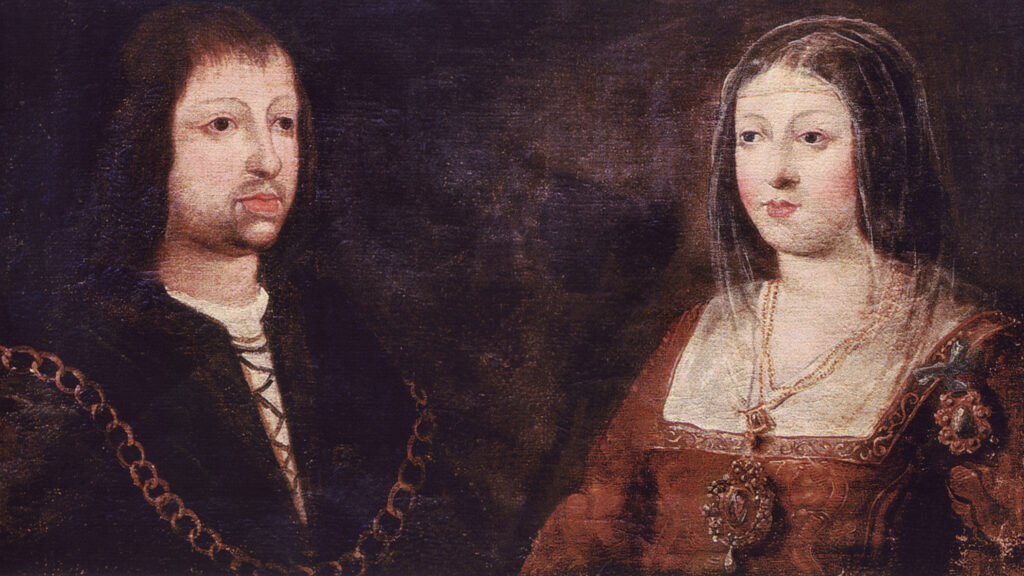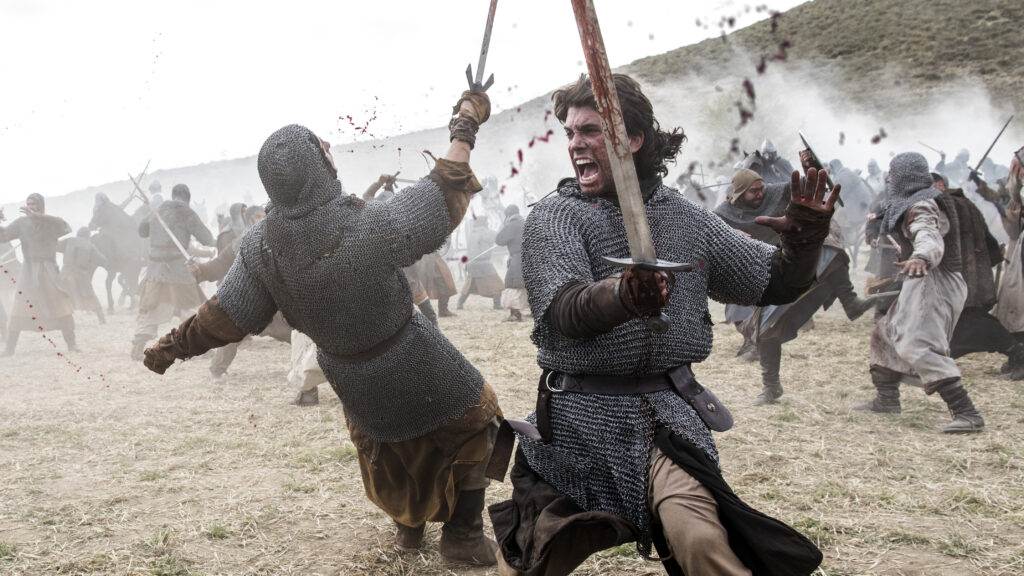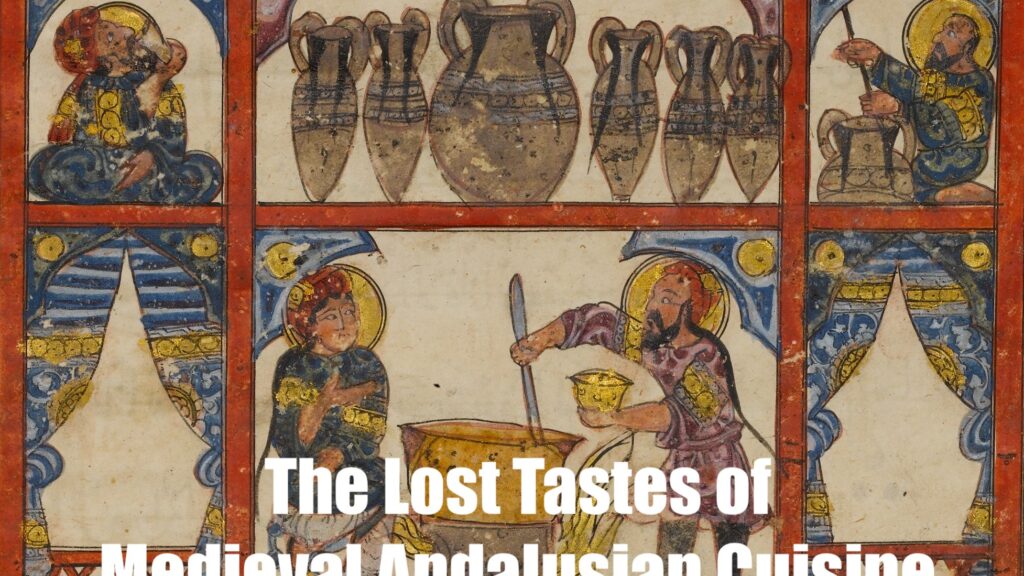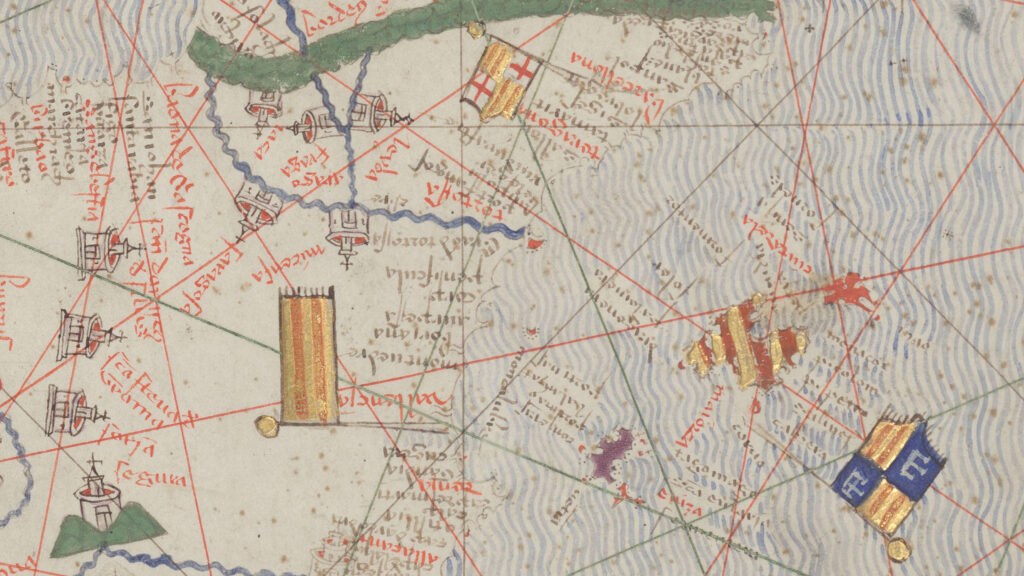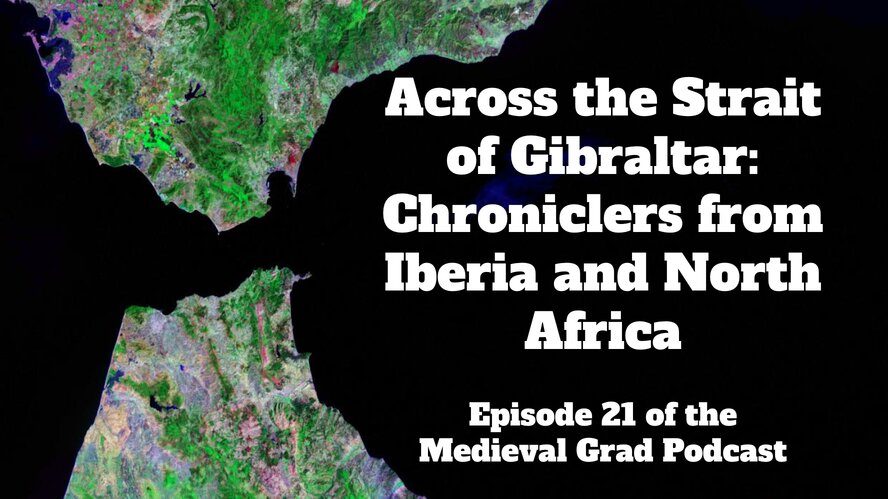Royal Grief in Medieval Iberia with Nuria Silleras-Fernandez
This week on The Medieval Podcast, Danièle speaks with Núria Silleras-Fernández about what grief and widowhood were “supposed” to look like, how grief and madness were thought to be intertwined with love, and how the grieving women in the famous Isabella the Catholic’s family shaped the history of Spain and Portugal.
When the Groom Paid the Dowry: New Study Rethinks Marriage in Medieval Catalonia
A new study reveals that in 13th- and 14th-century Catalonia, some grooms brought dowries to their brides, challenging long-held assumptions about gender and wealth in medieval marriage
How the Almoravids Became a Medieval Empire
Discover how the Almoravids rose from Saharan pastoralists to forge a powerful medieval empire spanning North Africa and al-Andalus, driven by faith, conquest, and control of gold.
New Medieval Books: Shortage and Famine in the Late Medieval Crown of Aragon
Food security was a major concern for any medieval society. This book examines how individuals and communities responded to this challenge, particularly during periods of famine.
Medieval Shipwreck Uncovered Beneath Barcelona
Archaeologists in Barcelona have uncovered a 15th–16th century shipwreck beneath the city, offering new insights into medieval shipbuilding and maritime trade in the western Mediterranean.
Historian Uncovers Unusual Rewards for Victory in Late Medieval Spain
In 1483, Queen Isabel I and King Fernando of Castile granted royal garments as perpetual rewards for battlefield victories. A new study uncovers how these unusual gifts became lasting symbols of favour, power, and memory in late medieval Spain.
Medieval Spain in Modern Media: Games, Shows, and Stories that Bring the Past to Life
How often do you think about medieval Spain? For many, the answer is often—though as it turns out, it is not only scholars but also gamers, readers, and streamers who have turned this historical period into their “Roman Empire.”
The Lost Tastes of Medieval Andalusian Cuisine: A Wealth of Spices and Flavours
Here is a list of some of these lost tastes, which reflect the richness of medieval Andalusian cuisine.
New Medieval Books: El Cid
The original Rodrigo Diaz was a mercenary who fought for Christian and Muslim rulers, and for himself. This book tracks how, over the centuries, this figure becomes El Cid, the Christian and Spanish hero.
From Generation to Generation: Jewish Inheritance Practices and Christian Notarial Culture in the Crown of Aragon, 1250-1391
This paper argues that the vast majority of Jews who drew up notarial wills, donatio inter vivos contracts, and other Latinate documents related to inheritance did not seek to circumvent Jewish law. Instead, they valued a combination of Latin and Hebrew-Aramaic contracts as a means of making their inheritance choices intelligible both within and beyond the Jewish community.
Forging a Kingdom in the 11th century with Simon Doubleday – The Medieval Podcast, Episode 256
In the eleventh-century, Iberia was in the process of evolving networks of tiny villages into the powerful kingdoms we recognize from the end of the medieval period – sometimes by any means necessary. This week on The Medieval Podcast, Danièle speaks with Simon Doubleday about the ways in which Queen Sancha and King Fernando I shaped northern Spain and Portugal.
Isolation and Disease in a Medieval Spanish Community: New Findings from Las Gobas
A recent archaeogenetic study has revealed intriguing details about Las Gobas, an isolated medieval community in northern Spain.
The Battle of Las Navas de Tolosa (1212)
A turning point in the history of Iberia, the year 1212 would see the combined armies of Castile, Aragon and Navarre facing off against the Almohads. In this episode of Bow & Blade, Michael and Kelly talk about a key battle of the Reconquista.
The Legend of Zaida, Princess of Seville
Natalie Mallat tells the story of Zaida, an 11th-century princess.
New Medieval Books: Jewish Life in Medieval Spain
Focusing on mostly the later medieval period, this book examines the Jewish community in Spain, covering a turbulent period that saw much happen within the community as well as in their relations with their Christian and Muslim neighbours.
In Between Two Worlds: Jewish Women and Conversion in Late Medieval Catalonia
Blanca de Banyoles’ life is in many ways emblematic of the experiences of many Jewish women who converted to Christianity following the violence of 1391.
Brother vs brother in 15th-century Castile: The Battle of Olmedo in 1467
During the mid-fifteenth century, the Kingdom of Castile was involved in a bloody set of three large battles to determine whether its king would prevail over the nobles in a kind of Spanish Wars of the Roses.
Battle of Roncevaux Pass (778)
On August 15, 778, the forces of Charlemagne find themselves in battle with the Basques. Many years later, this encounter inspired a famous story known as the Song of Roland. In this episode of Bow & Blade, Michael and Kelly discuss the historical and the legendary when it comes to this battle.
The Battle of Nájera (1367)
The Hundred Years’ War moves to Iberia, as the French and English get involved in the Castilian Civil War. The forces would meet…
What Did Medieval Slavery Look Like? New research reveals how art was not imitating reality
Why were artists in later medieval Iberia consistently depicting enslaved people as having dark skin and coming from sub-Saharan Africa during a time when Black slaves were a small minority in this society?
Across the Strait of Gibraltar: Chroniclers from Iberia and North Africa
We are bridging communities across the sea in this episode of the Medieval Grad Podcast. Emma Snowden talks with Lucie Laumonier about her dissertation, “Bridging the Strait: The Shared History of Iberia and North Africa in Medieval Muslim and Christian Chronicles.”
Medieval Chess: Alfonso X’s Book of Games
A great episode to know everything about chess, Iberian court culture and politics all at once!
Pope Gregory VII and Count Eblous II of Roucy’s Proto-Crusade in Iberia c. 1073
This article surveys the surviving material regarding Gregory VII and Eblous of Roucy’s expedition to Iberia c. 1073.
The Scars of War in the Portuguese Border Zone (1250-1450)
In this article we will consider the period between 1250 and 1450 in order to understand the effects of war in the Portuguese lands closest to the border and therefore more exposed to enemy weapons.
How the borders of Iberia changed in the Middle Ages
Three videos that detail the changing borders in Iberia during the medieval period.
